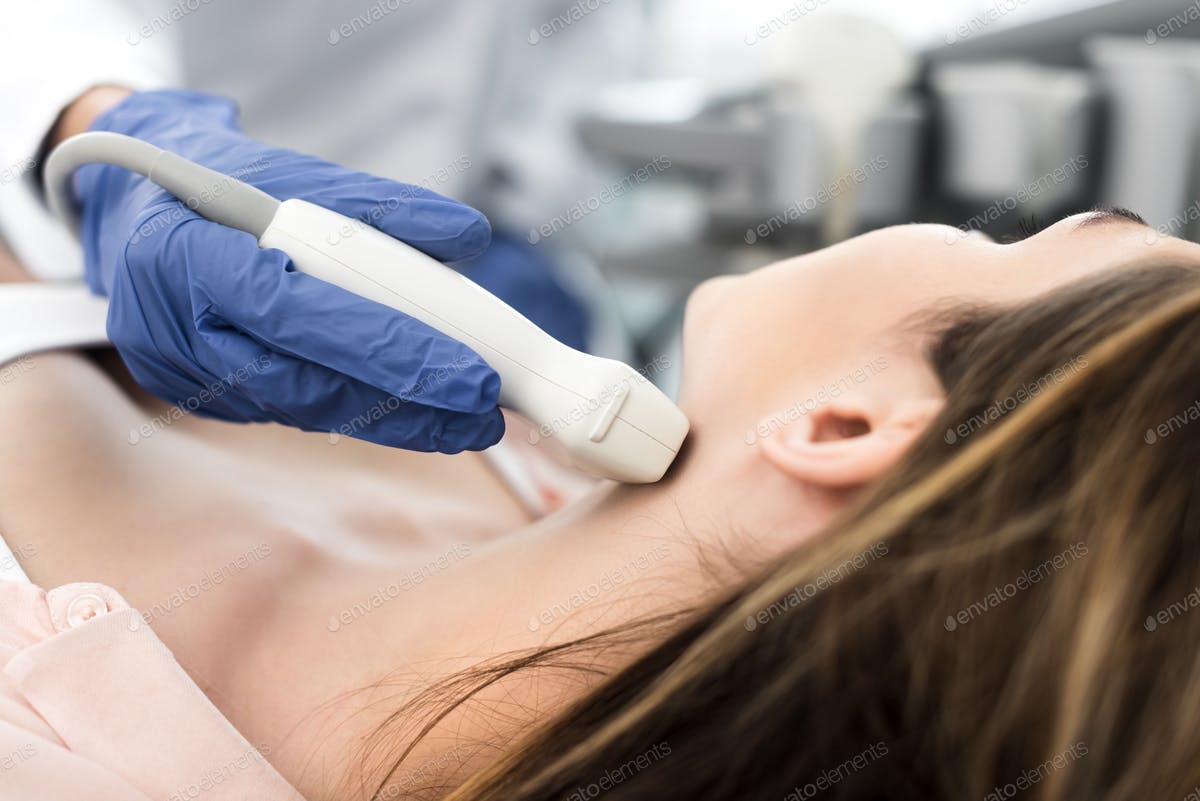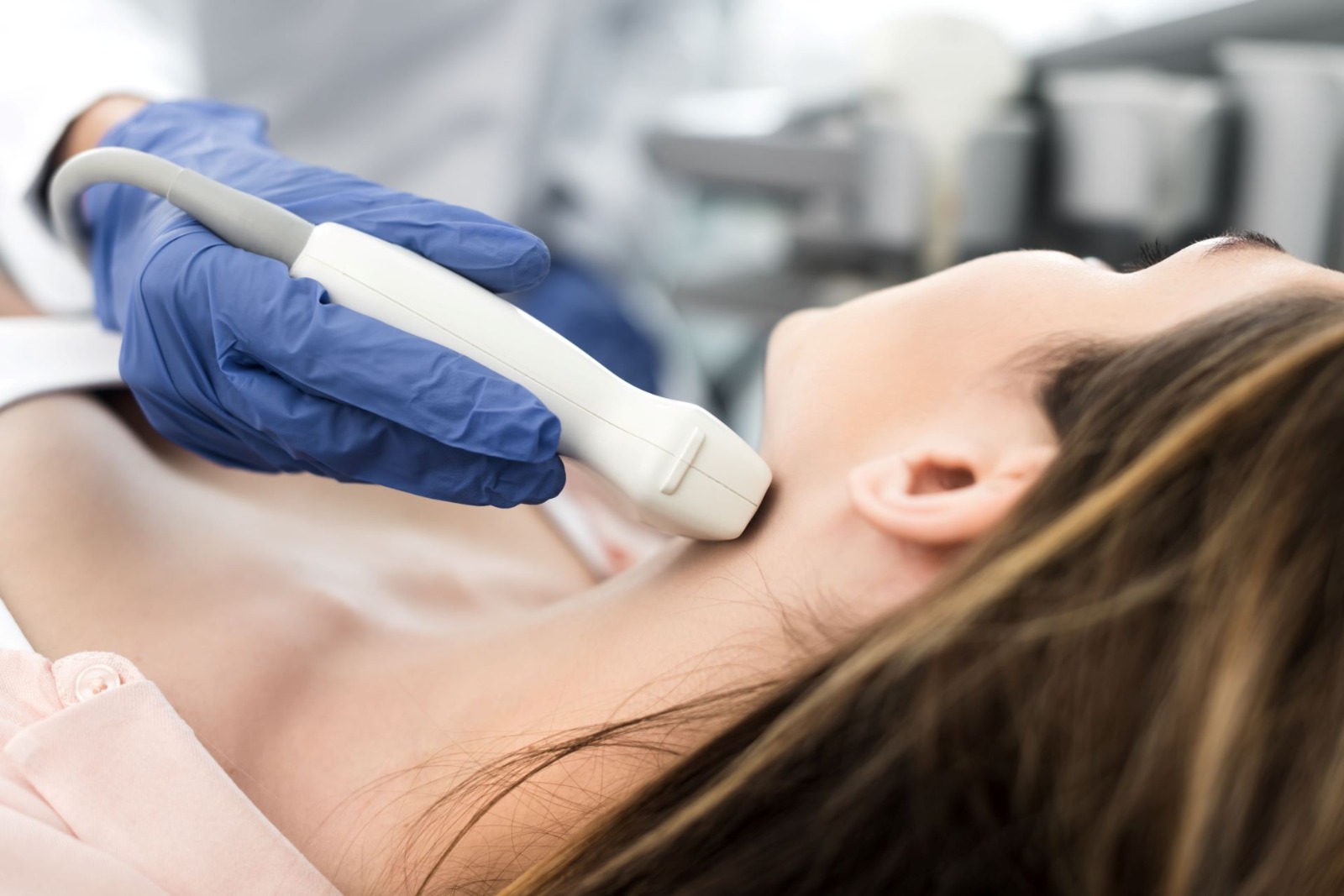
Thyroid Screening

FEBRUARY 23, 2022

Experiencing sudden weight gain or weight loss? Suddenly feeling lethargic, or experiencing unusual hair-loss? You might have thyroid issues.
The thyroid is a butterfly-shaped gland that is part of the endocrine system – the body’s regulating system that stores and releases hormones into the bloodstream. The thyroid gland produces hormones that control your metabolism and regulate other vital body functions like breathing, heart rate, weight, muscle strength, body temperature, menstruation, cholesterol levels, the nervous system and more.
Who should go for a thyroid screening?
Thyroid screening is offered as a part of most health checks. While there is no age barrier to disease affecting this gland, being a woman and getting older can increase one’s chances of developing the disease.
There are, however, those who are at increased risk of developing thyroid problems. If you have a personal or family history of immune system diseases or are taking medication for a mental health disease or heart disease, you’re at higher risk than most. If you’re pregnant, you should know that pregnancy outcomes have been linked to thyroid function, so it’s advisable to have it checked early. In addition, some women may develop an inflammation of the thyroid gland (thyroiditis) soon after delivery
What are the symptoms that signal thyroid issues?
Thyroid-related complaints may be subtle, come on gradually and be easily overlooked. Typical symptoms include fatigue, unexplained weight loss or weight gain, fast heartbeat, anxiety, tremors, lethargy, mental slowness, depression, dry hair or hair loss, dry skin, puffiness around the face, constipation and feeling very cold. Swelling of the neck (goitre), together with difficulty in swallowing or obvious lumps on the neck may also be symptoms of a thyroid disorder.
Are thyroid problems related to one’s lifestyle?
Chronic stress can affect the thyroid, as can diet and other lifestyle factors. Stress has been known to trigger abnormal immune responses. Other causes could include certain viral infections, medications taken for other reasons, and deficiencies in nutrients such as iodine and selenium. People who have had radiation therapy can also be predisposed.
What treatments are available to fix thyroid problems?
Thyroid hormone supplements should ease symptoms within a few weeks, and specific medication is required for over-functioning thyroid glands. “Reducing stress and maintaining a healthy lifestyle and nutrition, as well as testing and treating for nutrient deficiencies, are a holistic approach to the condition. Appropriate treatment can lead to dramatic improvements, including greater energy, quicker thinking, weight loss and better mood,” says the doctor.
Who should go for a thyroid screening?
Thyroid screening is offered as a part of most health checks. While there is no age barrier to disease affecting this gland, being a woman and getting older can increase one’s chances of developing the disease.
There are, however, those who are at increased risk of developing thyroid problems. If you have a personal or family history of immune system diseases or are taking medication for a mental health disease or heart disease, you’re at higher risk than most. If you’re pregnant, you should know that pregnancy outcomes have been linked to thyroid function, so it’s advisable to have it checked early. In addition, some women may develop an inflammation of the thyroid gland (thyroiditis) soon after delivery
What are the symptoms that signal thyroid issues?
Thyroid-related complaints may be subtle, come on gradually and be easily overlooked. Typical symptoms include fatigue, unexplained weight loss or weight gain, fast heartbeat, anxiety, tremors, lethargy, mental slowness, depression, dry hair or hair loss, dry skin, puffiness around the face, constipation and feeling very cold. Swelling of the neck (goitre), together with difficulty in swallowing or obvious lumps on the neck may also be symptoms of a thyroid disorder.
Are thyroid problems related to one’s lifestyle?
Chronic stress can affect the thyroid, as can diet and other lifestyle factors. Stress has been known to trigger abnormal immune responses. Other causes could include certain viral infections, medications taken for other reasons, and deficiencies in nutrients such as iodine and selenium. People who have had radiation therapy can also be predisposed.
What treatments are available to fix thyroid problems?
Thyroid hormone supplements should ease symptoms within a few weeks, and specific medication is required for over-functioning thyroid glands. “Reducing stress and maintaining a healthy lifestyle and nutrition, as well as testing and treating for nutrient deficiencies, are a holistic approach to the condition. Appropriate treatment can lead to dramatic improvements, including greater energy, quicker thinking, weight loss and better mood,” says the doctor.
Recent Post
-
Understanding Test Items Included in Health Screening
June 05, 2025 -
How To Choose a Health Screening Package
June 05, 2025 -
Heart Screening Singapore: What Is Coronary Artery
June 05, 2025




